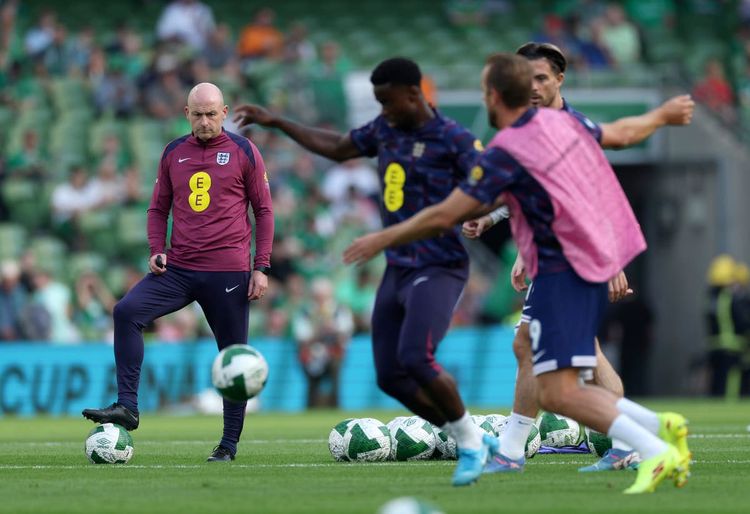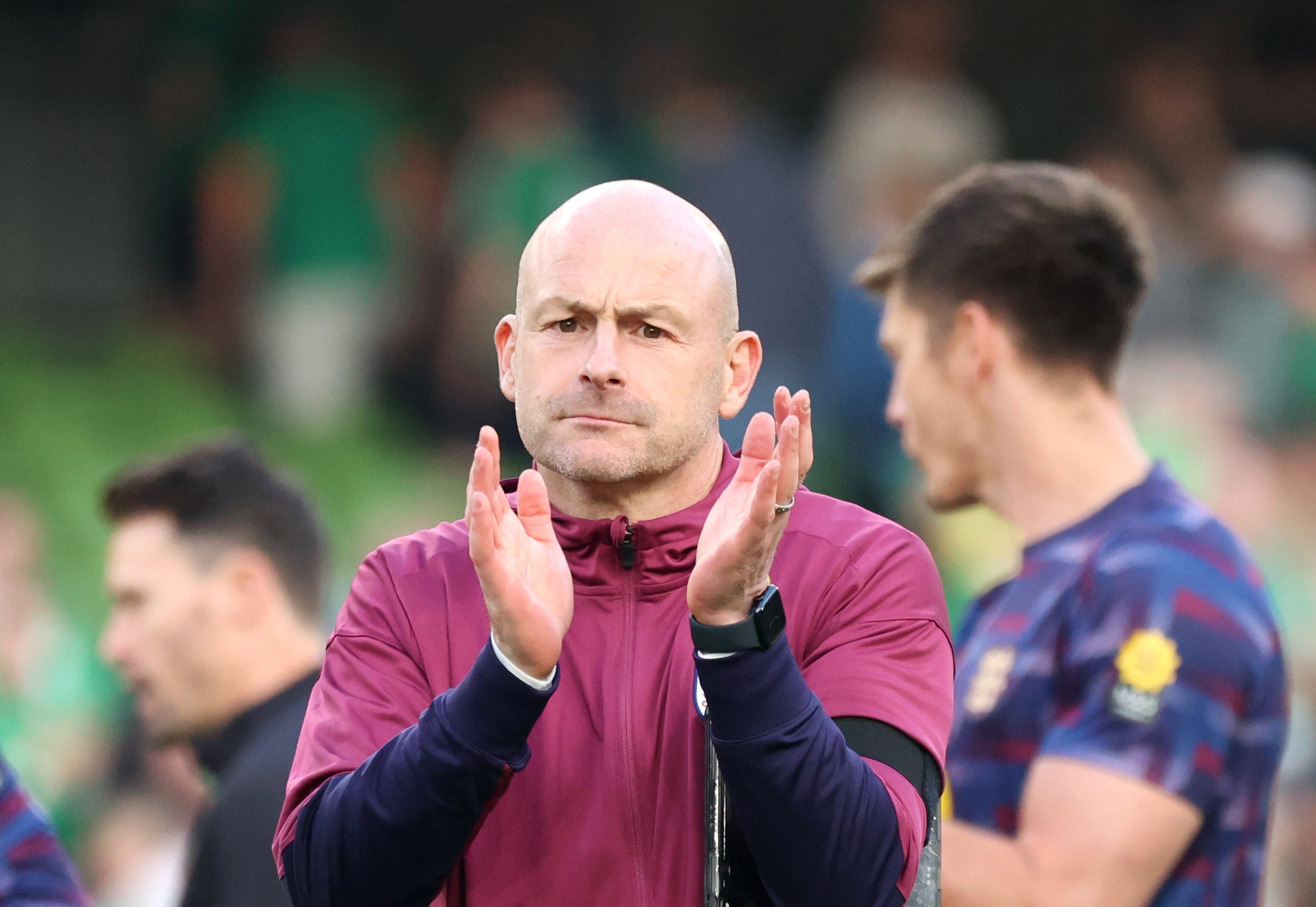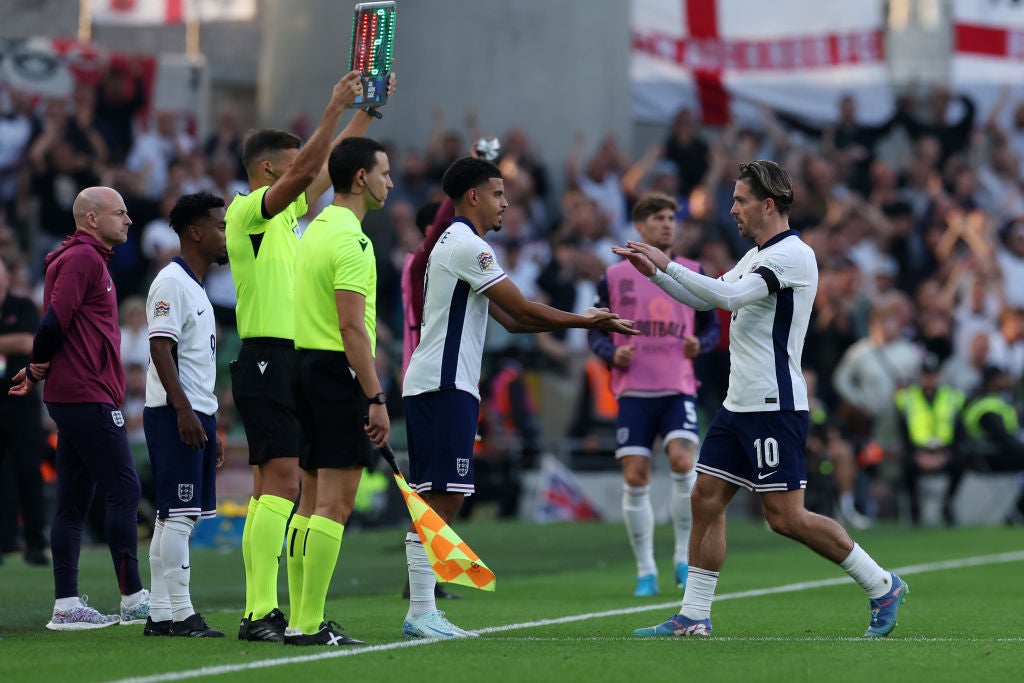Lee Carsley believes the ‘manager’ is becoming extinct as he coaches new England

Get Miguel Delaney's Newsletter For Free
Join Miguel Delaney's Newsletter For Free Updates
Get Miguel Delaney's Free Weekly Newsletter
Lee Carsley says he sees himself more as a head coach rather than a traditional manager, and believes that the role of manager may be disappearing in the world of international soccer.

The 50-year-old acknowledged that he hesitated about becoming the leader of England's senior team, but after the 2-0 victory over Ireland in Dublin, his confidence received a major boost. Gibbs-White, who used to play for under-21 under Carsley and recently got his first full cap, noticed that the interim manager was more focused in his new position.
Leading up to the game, there was a lot of talk about Irish connections and whether Carsley would sing the national anthem. However, all of that chatter was quickly forgotten when the team put on a strong and exciting performance. The first half was especially impressive, with precise tactics that set the team apart from Gareth Southgate's squad. It was a reminder that winning matches and playing at a high level can silence the distractions and pressure that come with the England job.
Carsley was suggesting that the role of a manager may no longer be necessary, especially in countries like Britain, Ireland, and Brazil where the national team coach is considered a significant leader. However, other countries like Germany, Argentina, and Spain have been successful in major tournaments by promoting coaches from within their own systems. If Carsley continues to perform well as a temporary coach, he could potentially follow in the footsteps of Luis de la Fuente by leading the Under-21 European Championships to success and then being promoted to a senior coaching position.
"I don't consider myself a manager, for sure," Carsley explained. "I view myself as a head coach. I have a great support system that assists me and relieves a lot of the pressure. This allows me to focus on coaching and being on the field, hopefully making an impact. That's how I need to approach it. I couldn't imagine doing it any differently."
An interesting twist is that, despite the emphasis on the manager as Southgate saw it, Carsley remembers the FA describing the role in the 1970s as "a young man in a tracksuit." This is something the interim coach acknowledges, as he considers whether the traditional concept of a "manager" is fading away.

Yes, I believe that is the case. If I reflect on when I first began, the manager was responsible for all tasks, such as arranging travel and transfers. It seems that times have changed. The support available now, mainly centered around a head coach, allows coaches to focus on their strengths and responsibilities.
I feel fortunate to have supportive and understanding bosses who recognize my strengths. I excel at coaching and being on the field, but public speaking is not my strong suit. I acknowledge that it's part of the job, but I have my own approach to it.
Gibbs-White has observed a subtle shift in the manager of the under-21s.
I think he has become more focused and committed, which is a positive change. He has taken on a greater responsibility and seems to be approaching everything with a strong sense of seriousness. It's impressive to see his dedication to staying with us. I hope we can continue to perform at this level, trust in his vision, and progress together.
Carsley really opened up about some of the concerns he used to have, discussing the strong bond he shares with the FA's director of football, John McDermott.
I feel really supported by John. When he asked me to take on the job temporarily, it really boosted my confidence. Sometimes I doubted if I could handle being the England manager, but John's trust made me feel better. It's not as easy as it looks from the outside. Today, I feel more confident in myself and in the rest of the staff. We will be okay. I mentioned this during my first press conference - I believe we are in good hands and in a good position with the players.
Carsley laughingly admitted that he had some hesitations right before facing the media for an interview.
I believe it's normal to feel unsure as we head into the Euros with the 21s. With our track record, there was a fear that we might be eliminated quickly. However, I have found that having a good support system and learning from past challenges can make facing uncertainties easier.
England moved quickly in the first half against Ireland, showing the results of their hard work in practice.
"We've only had four training sessions so far, so it's still early," Carsley stated. "The players deserve a lot of praise for implementing the techniques we've practiced and taking it upon themselves to perform on the field."
I believe we need to be cautious when using the term 'freedom'. Our goal is to place skilled players in effective positions where they can excel. While this may be considered freedom, it also requires a high level of responsibility when the team is not in possession of the ball. I felt that we executed this well, narrowing the field to put pressure on Ireland and successfully regaining possession. Both Jack Grealish and Anthony Gordon performed impressively. Anthony was able to carry over his strong club performance onto the field, even on a slow and dry pitch he showcased moments of brilliance.
Gibbs-White explained the methods of his new head coach.
"He is actively involved in managing both on and off the field. He is confident in his own thoughts and seeing that, we start to believe in him too. It's great to hear directly from the manager both in games and during practice. I believe the team is fully supporting him and enjoying the current atmosphere. Hopefully, it remains this way for a while."
These thoughts come from him, he's the one sharing them. Of course, he has assistance from others, but he's in charge for now. Hopefully, this dynamic can continue and we can continue to grow as a team.











































































